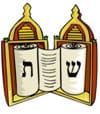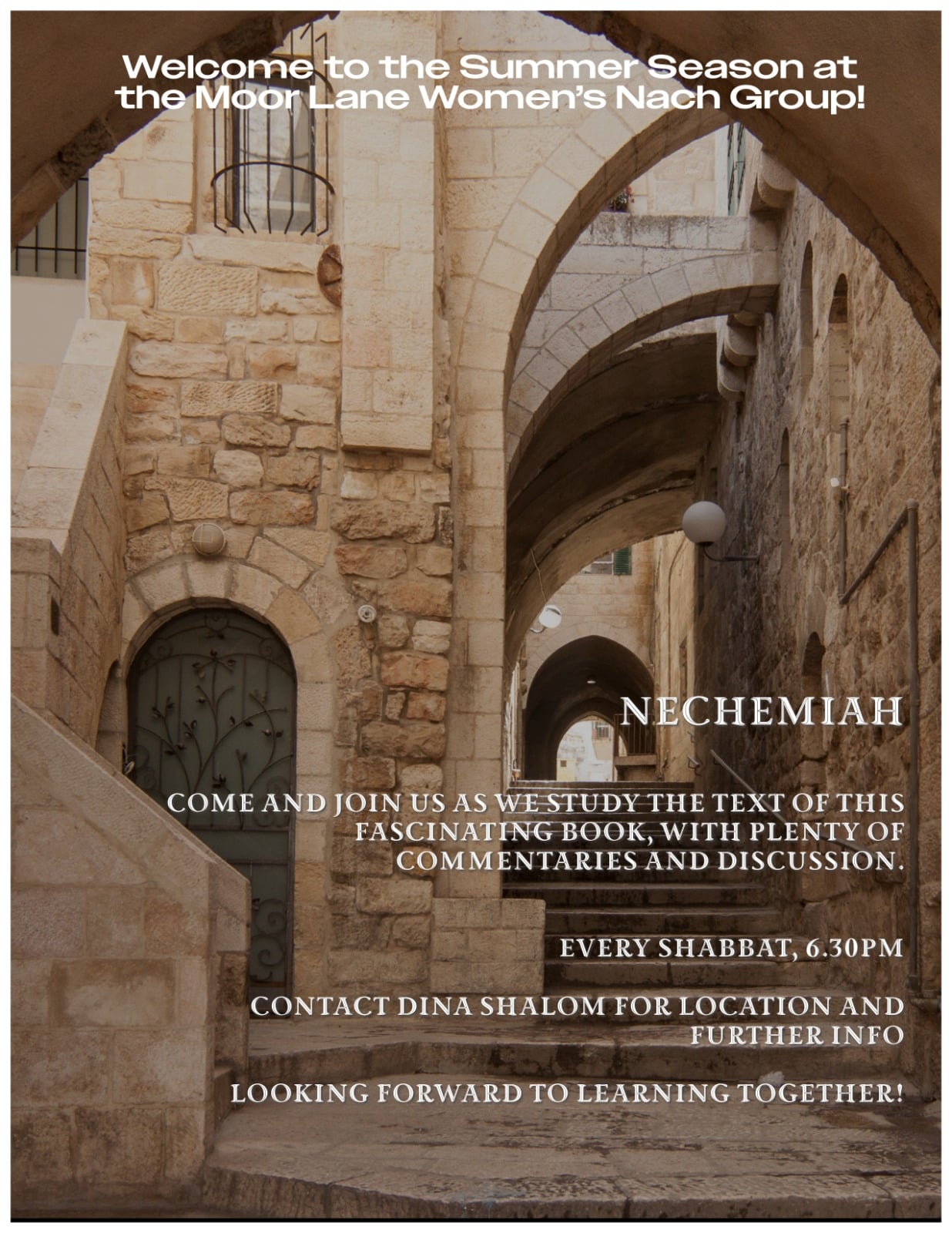
ק׳ ק׳ שׁערי תפילה

*****

שבת מברכים
is שבת מברכים
*****

*****

לוח זמני תפלה לקיץ תשפ״ה
Summer Timetable 5785 – 2025
מוצאי שבת | ערבית )מוצ”ש( | שקיעה | סוף זמן קראת שמע | זמן שבת | פלג מנחה (תה״ד) | פלג מנחה (לבוש) | מנחה וקבלת שבת | תאריך | שבת פרשת |
Shabbat Ends | Arbit | Sunset | Shema to be read before | Candles to be |
| Earliest Candle lighting | Minha & Kabbalat Shabbat* | Date | Parasha |
PM | PM | PM | AM | PM | PM | PM | PM |
|
|
10:34 | 10:30 | 9:24 | 9:09 | 9:11 | 8:24 | 7:44 | 7:30 | 18/19 July | פינחס (ש''מ) |
🕯️SUMMER TIMES FOR SHABBAT 🕯️
שבת
קרבנות
9:00 am
הודו
9:15 am

מנחה
6:30 pm
****

****
Hashem tells Moshe to inform Pinchas that he will receive Hashem’s “covenant of peace” in reward for his bold action — executing Zimri and the Midianite princess Kozbi. Hashem commands Moshe to maintain a state of enmity with the Midianites, who lured the Jewish People into sin. Moshe and Elazar are told to count the Jewish People. The Torah lists the names of the families in each tribe. The total number of males eligible to serve in the army is 601,730. Hashem instructs Moshe how to allot the Land of Israel to the Bnei Yisrael. The number of the Levites' families is recorded.
Tzlofchad's daughters file a claim with Moshe. In the absence of a brother, they request their late father's portion in the Land. Moshe asks Hashem for the ruling, and Hashem tells Moshe that their claim is just. The Torah teaches the laws and priorities which determine the order of inheritance.
Hashem tells Moshe that he will ascend a mountain and view the Land that the Jewish People will soon enter, although Moshe himself will not enter it. Moshe asks Hashem to designate the subsequent leader, and Hashem selects Yehoshua bin Nun. Moshe ordains Yehoshua as his successor in the presence of the entire nation.
This Torah portion concludes with special teachings of the service in the Beit Hamikdash.
Ohr Somayach Institutions www.ohr.edu

מנהגי ימי בין המצרים
הימים שבין שבעה עשר בתמוז לתשעה באב, נקראים ימי “בין המצרים”, וכפי שהסברנו אתמול.
ומקור המנהג הוא מספר חסידים שכתב שלא היו אוכלים פרי חדש בבין המצרים, כי אמרו, איך נברך “שהחיינו וקיימנו והגיענו לזמן הזה” והוא זמן פורענות וימי צרה לעם ישראל? וכן כתב מרן בשלחן ערוך, שטוב להזהר מלומר “שהחיינו” בבין המצרים על פרי או על מלבוש. ואף רבינו האר”י כתב, שאין לברך שהחיינו בימי בין המצרים. וכן הסכימו רוב האחרונים. (חזון עובדיה עמוד קכט).
ומעוברת (אשה בהריון) שרואה פרי חדש ומתאווה לאכול ממנו. מותר לה לאכול פרי חדש בימי בין המצרים. ותברך עליו שהחיינו.
בשבתות שבתוך ימי בין המצרים מותר לברך שהחיינו על פרי חדש או על בגד חדש. ומכל מקום לאחר ראש חודש אב, נכון להחמיר שלא לברך שהחיינו על בגד חדש אפילו בשבת. אבל על פרי חדש יש להקל לברך אף בשבת זו שאחר ראש חודש אב. (כן פסק מרן רבינו עובדיה יוסף זצ”ל בספרו שו”ת יחוה דעת ח”א סימן לז).
אף על פי שמעיקר הדין, מותר לשמוע בשאר ימות השנה דרך הרשם קול, טייפ או דיסק וכדומה, שירים, ובפרט שירי קודש, המלווים על ידי כלי נגינה, מכל מקום, כתב מרן רבינו עובדיה יוסף זצ”ל, שבימי בין המצרים יש להמנע מכך. וכבר הארכנו בזה במקום אחר. ומכל מקום, בשמחת מצוה, כגון שמחת חתן וכלה, או בשמחת ברית מילה, או בסעודת פדיון הבן, או בר מצוה, או סיום מסכת, מותר לשמוע שירי קודש המלווים בכלי נגינה, שכל שהיא שמחה של מצוה, יש להקל בדבר.
ולסיכום: אין לברך שהחיינו על בגד או פרי חדש בימי בין המצרים. ובשבתות שבימי בין המצרים אפשר להקל בדבר. ובשבת שחלה אחר ראש חודש אב, יש להחמיר בזה לגבי בגד חדש, אבל לגבי פרי חדש אפשר להקל. ואין לשמוע מוזיקה בימי בין המצרים. אבל שירה בלי כלי נגינה, מותרת.
ומותר לקנות בגדים חדשים בימי בין המצרים, עד ראש חודש אב. אך אין ללובשם עד לאחר תשעה באב.
Customs of the “Three Weeks”
The three-week period between the Seventeenth of Tammuz and the Ninth of Av is referred to by our Sages as “Between the Straits,” based on the verse (Eicha 1, 3), “All of her enemies overtook her between the straits.”
Reciting the “Shehecheyanu” Blessing During the “Three Weeks”
It is proper to abstain from reciting the “Shehecheyanu” blessing during the three weeks between the Seventeenth of Tammuz and the Ninth of Av on a new fruit or a new garment. One should leave the new fruit or garment for after Tisha Be’av rather than to eat the fruit or wear the garment without reciting “Shehecheyanu.”
The source for this custom can be found in the Sefer Chassidim who writes that they would not eat a new fruit during the “Three Weeks,” for how can one recite the blessing of “Who has given us life, sustained us, and allowed us to reach this time,” during such a tragic period? Maran Ha’Shulchan Aruch likewise writes that it is preferable to abstain from reciting the “Shehecheyanu” blessing on a new fruit or garment during the “Three Weeks.” Rabbeinu Ha’Ari z”l rules likewise, as do the consensus of the Acharonim. (Chazon Ovadia-Arba Ta’aniyot, page 129)
If a pregnant woman sees a new fruit during the “Three Weeks” and craves it, she may indeed eat this fruit during this time and she should recite the “Shehecheyanu” blessing before eating it.
On Shabbatot that fall out during the “Three Weeks,” one may recite “Shehecheyanu” on a new fruit or garment. Nevertheless, following Rosh Chodesh Av, it is preferable to abstain from reciting “Shehecheyanu” on a new garment even on Shabbat. However, regarding reciting the “Shehecheyanu” blessing on a new fruit on the Shabbat following Rosh Chodesh Av, one may act leniently and do so. (Responsa Yechave Da’at, Volume 1, Chapter 37)
Listening to Music During the “Three Weeks”
All forms of dancing are forbidden during the three weeks between the Seventeenth of Tammuz and the Ninth of Av, even when there is no musical accompaniment.
Although during the rest of the year one may listen to music from a tape recorder, cassette, CD, and the like (recorded music), especially songs with holy words that are accompanied by musical instruments, Maran Rabbeinu Ovadia Yosef zt”l writes that during the “Three Weeks”, one should refrain from doing so. Nevertheless, when it comes to a celebration of a Mitzvah, such as a wedding, Berit Milah, the festive meal of a Pidyon Haben (redemption of the firstborn), Bar Mitzvah, or conclusion of a tractate of the Talmud, one may listen to songs composed of holy words and musical accompaniment, for as long as it is in celebration of a Mitzvah, one may act leniently regarding this matter.
Singing During the “Three Weeks”
Singing, without musical accompaniment, is permissible during this time. One may certainly act leniently regarding this matter on the Shabbatot that fall out during the “Three Weeks”; indeed, even on Tisha Be’av that falls out on Shabbat, one may sing songs in honor of Shabbat.
One Whose Livelihood Depends on Playing a Musical Instrument
If one’s job requires him to play a musical instrument for non-Jews, one may continue to play music until the week during which Tisha Be’av falls out. Similarly, regarding a music teacher who teaches students to play musical instruments, such as the violin and the like, if one will incur a monetary loss by not teaching during this period, one may indeed continue to teach playing music until the Sunday before Tisha Be’av. It is preferable, nonetheless, to act stringently regarding this matter beginning from Rosh Chodesh Av. Just as music teachers may act leniently regarding this matter, so too, a student learning to play a musical instrument may continue doing so during this period.
Playing Music in Camps
Camps or Daycare programs which operate during the “Three Weeks” and play songs with musical accompaniment as part of their daily routines may act leniently and continue to do so during the “Three Weeks.” Maran Rabbeinu Ovadia Yosef zt”l and Hagaon Harav Yaakov Kamenetzky zt”l rule likewise
Laundering Clothing
We will, G-d-willing, discuss the laws of laundering clothing and wearing freshly-laundered clothing closer to Rosh Chodesh Av.